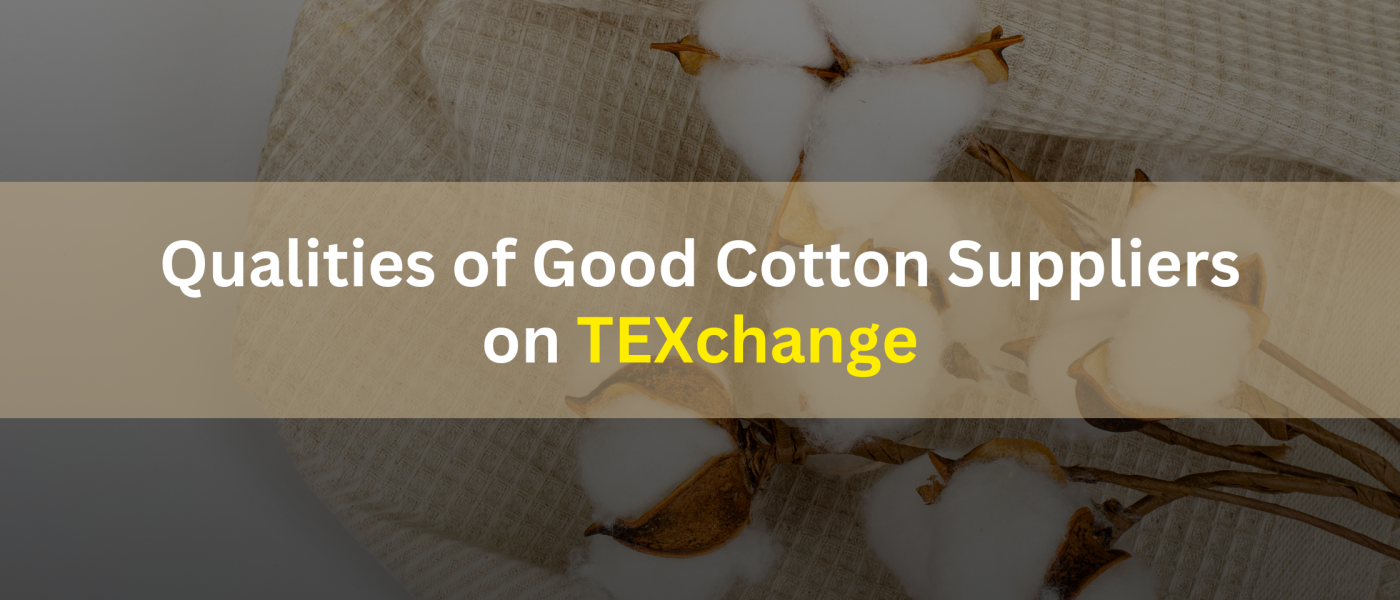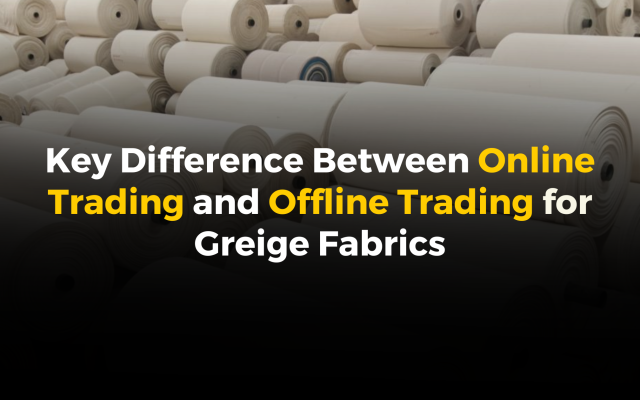Savvy buyers understand the importance of choosing reliable and efficient cotton suppliers. Your choice will determine your product’s quality and business success. Thankfully, when it comes to the TEXchange platform, the options are many for fabric buyers. However, choosing the right seller for cotton fabric online is as crucial as choosing a business partner. A wrong seller can lead to shipping delays, poor quality, frequent returns, and beyond. While all the suppliers on TEXchange are verified and rated well, when choosing one or more sellers to work with, you must consider the following fundamental qualities.
Takes Responsibility for Product Quality and Delivery
Dealing with challenges like shipping delays, receiving incorrect products, or encountering minor errors such as untrimmed threads can be quite frustrating. When you buy cotton fabric online from India, you rely heavily on the supplier’s communication, reputation, and commitment. Thus, partnering with cotton suppliers who take ownership of their products, the ordering process, and delivery can greatly streamline your experience.
A responsible supplier will assume ownership of any quality issues and proactively work towards finding a resolution. They may propose actions such as eliminating loose threads, enforcing more stringent quality checks, or updating work instructions to prevent the recurrence of such defects in future production cycles.
In contrast, an unaccountable supplier is prone to evading responsibility. They may claim that the fiber quality was subpar and challenging to handle.
- Has the Right Production Capabilities
Most TEXchange importers believe in choosing suppliers capable of fulfilling their production requirements, whether capacity, product quality, or material type. In fact, many importers emphasize the potential supplier’s production capacity more and overlook other factors like price.
However, confirming a supplier’s production capabilities is more challenging than conversing with a supplier representative discovered on TEXchange.
There are various ways to know whether the cotton suppliers meet your standards:
- Visit the supplier factory or head office personally or through an agent like Damodar Menon International.
- Ask for their certifications, like ISO and OEKO-TEX.
- Review and audit product samples before placing bulk orders.
This approach helps ensure the factory’s production output aligns with your specific product requirements. Additionally, you can send the sample to a laboratory for further testing to ensure accuracy and compliance.
- Has Experience and Expertise in the Target Market
Choosing a supplier with expertise in your product and target audience will likely be more familiar with expected quality issues and customer pain points. They are more likely to identify and fix the problem before they blow out of proportion.
For instance, if a seller from India has experience exporting products to your target market, i.e., France, they will also know the transportation, shipping, quality, and legal requirements. You might be able to verify where cotton suppliers export by checking their TEXchange profile.
- Communicates with Ease and Confidence
When you are searching for suppliers in other countries, it can be challenging because of differences in language and culture. Finding a supplier with whom you can easily talk is a big advantage. Good communication, such as an English-speaking salesperson with open and direct communication, can stop many issues, like delays in making products or getting the wrong items.
- Cooperates for Quality Control Officer
Nowadays, most Asian manufacturers require third-party inspections as standard procedures. A good supplier on TEXchange will oblige the importer’s requests to have a certified QC officer check the products before they are shipped. If a supplier resists this type of quality control, it’s usually a reason to worry. Some suppliers might rush the shipment to prevent you from noticing any problems. They could be trying to conceal an issue from you.
Having an external inspection can actually benefit the fabric buyer.
- Complies with the Laws of Their and Your Countries
Fabric buyers, especially importers, must ensure that their cotton suppliers adhere to the laws in the country where they manufacture and the target market. Neglecting regulatory compliance can lead to legal consequences for you and your business.
Conducting a factory audit and performing a credit check can be valuable steps to confirm the legitimacy. Checking if the supplier possesses a valid business license and export license can help you steer clear of illegal operations.
Moreover, you may be subject to additional regulations if you’re importing specific products, such as silk. Demonstrating clear evidence of compliance with these regulations through accreditations can be one of the most crucial qualities of a reputable supplier.
If you want to explore cotton fabric material online, register your business on TEXchange and enjoy great deals from top-rated suppliers.




